- From Faith Current: “The Sacred Ordinary: St. Peter’s Church Hall” - May 1, 2023
- A brief (?) hiatus - April 22, 2023
- Something Happened - March 6, 2023
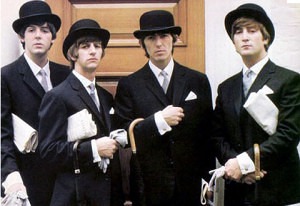
City gents, 1964.
After watching a tantalizing but toothless BBC documentary on the English aristocracy, my musing mind wondered: what was the relationship between the Beatles and the aristocracy? I’m not talking about professional contact — not “rattle your jewelry” or the MBE — but what John, Paul, George and Ringo felt personally.
The more I think about it, the more I’m surprised at how little public contact there seems to have been between the Beatles and the aristocracy, especially given the high/low mixing that Swinging London was known for. I know that Seltaeb was run by Horse Guards‘ own Nicky Byrne (and one of the investors was Peregrine Eliot, the Tenth Earl of St. Germans), but the Beatles and entourage seem to be uncommonly free from English upper-class helpers or hangers-on. I remember the Fabs being very put off by how they were treated by David Ormsby-Gore and the rest at the Embassy party in 1964 (Ringo lost a chunk of hair, remember). But surely in the white-heat of Wilson’s classless Britain, the Beatles must’ve attracted some young Lords and Baronesses — if only for the high-quality drugs about.
Even detractors seem suspiciously thin on the ground. Who am I forgetting? Surely England’s version of William F. Buckley felt the sky was falling, just as ours did? Conservatives everywhere loathed the Beatles, even more than the Stones, because the Beatles were sneaky. Lennon gleefully agreed. “In a way we’d turned out to be a ‘Trojan Horse.’ The Fab Four moved right to the top and then sang about drugs and sex and then I got more and more into the heavy stuff and that’s when [the straight society] started dropping us.”
You’d think John Lennon would’ve had some particularly piquant public statements about Britain’s aristocracy, but none are springing to mind. And perhaps there’s a good reason for this: for all of John’s power-to-the-peopling, he had a definite snobbish streak (he was, after all, as much Mimi’s son as Julia’s). And when he died, Lennon had set a team of genealogists looking for royalty in the old Lennon/Stanley lines.
Help me out here, Beatle hive-mind: what was the relationship between the Beatles and the aristocracy?



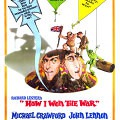
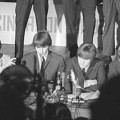
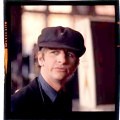

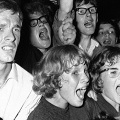
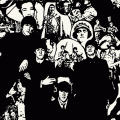
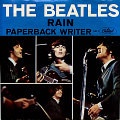

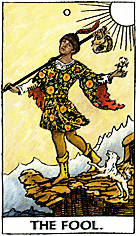
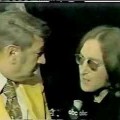
From the recent Esquire McCartney interview:
—
ESQ: You come from a modest background, in Liverpool.
PM: It was quite poor, actually.
ESQ: Do you still feel a connection to that world? Do you still recognise its influence on you, in your tastes and attitudes and opinions?
PM: I still feel like that guy. It used to be like a religious thing where I would go up every year for our family New Year’s Eve party. Particularly while all the elders were still alive. We always had a party when I was a kid. My dad was the pianist, all the uncles and aunties were there. Me and my brother would be on the bar. I have millions of great memories from then. It was a very lovely family. People sometimes say to me, how come [fame] hasn’t affected you so much? And I think it is a lot to do with that. I don’t do it quite as much now. Probably because the uncles and aunties have all died off. But I still do it and it always grounds me. [Thick Scouse accent] “Alright, Paul? How you doin’, la’? Eh! What’s up?” I always feel like, I’m one of them. That is who I am.
ESQ: We’re told the Sixties created a classless society. Is that true?
PM: No. I think it helped towards that. There was a very good period of hanging with anyone: musicians, painters, aristocrats, playwrights. Didn’t matter, really. I liked that about it. But I think ultimately the nobs still stayed on top. As long as Eton and Harrow are still there that’ll always be so.
ESQ: You’ve been knighted. Do you feel part of the Establishment now?
PM: No, not really. I don’t hang out with many aristocratic people. I just don’t know that many. When I was made a Sir, it did come up. I thought to myself, now probably I’ll have to go to banquets with all the other Sirs. But the thing is with me, the women I happen to be attracted to really don’t fancy that. They’re not social aspirants, really. I sometimes say, “Maybe we should go! It could be good!” But it’s like, “Nah, let’s not. Let’s go to the pictures.” I’ve never really run with that crowd.
I’m not sure on this one. I’ve just read Many Years from Now, and one thing is extremely clear about Paul when he first moved to London. It’s been sold (rightly) as “Paul was a part of the avant garde scene”, but more than that, he entirely hung around with extremely privileged and wealthy people. Not really pure aristocracy, but people who went to Eton, people who could afford a big property on Wimpole Street – most of his friends lived around the west end, which was always much much much more expensive to live in than most other parts of London.
One thing you never really see when people discuss the 60s is that for most people, life didn’t change radically. We still had weak, ineffectual employee protection in workplaces, we still had no welfare and safety protection; working class people had only just got free healthcare (and the ‘poor houses’, which I fear may be on their way back soon in the UK, had only really recently been closed).
When you see the wonderful things that were going on in “Swinging London”, it was mostly the preserve of a very privileged, wealthy group of people, and Paul was very much part of that.
Paul’s adventures in London were not with the old aristocracy, but the thing to remember then was that by this point, class barriers had barely begun to break down. In his book “At the Apple’s Core”, Denis O’Dell describes the trainer of the race horse Paul bought for his dad. The trainer, a proper upper class man called Lieutenant Colonel Wilfred Lyde (in the UK high-level military people are traditionally considered near the top of the class tree), still insisted that his weekend dinner guests dressed in black tie. He was utterly disconnected from culture. O’Dell said that Lyde “knew very little about Paul or the Beatles” (pp36-37).
So, looked at in that context, at that point in British history there wouldn’t have been any real points where the Beatles and the aristocracy could meet. However, their sons and daughters were very much starting to connect with the world of popular culture. Remember that lucky man who blew his mind out in a car? Tara Browne, whose father was 4th Baron Oranmore and Browne & 2nd Baron Mereworth.
Broadly then, I think Paul connected as much as one could at that point in Britain with aristocratic ‘types’, and the others didn’t.
That’s partly because of where he lived and who he lived with, but it might have been personal. Mark Lewisohn’s book makes a good case for Paul being ‘attracted’ to upwardly mobile, aspirational people (of course, the true aristocracy despises ‘aspirational’ types – actual upper class people believe they have an almost divine right to rule, whereas aspirational people believe that they’ve earned the right to do so).
I think Mark even quotes Paul saying something to that effect. Certainly with a strongly self-improving mother, and a father who had a good job and status but lost one and then the other during and after the war, the mix was right for him to grow up as someone who looked favourably on his ‘betters’. But then, a few times (including in the Esquire interview) he makes the point that even with the breaking down of class barriers in the 1960s, the people who had the power then still have the power now. That’s real wisdom, especially in the UK where “social class” (in the marketing sense) gets deliberately confused with “class” (in the old political sense of how much power you have in society).
@Evilpants, I’m convinced these issues are largely responsible for John and Paul’s increasing attachment to America beginning in the solo years. Not America the idea, which they’d always loved; but America the place to live. John loved Manhattan and was expanding his US real estate when he died; Paul has places in Beverly Hills and Arizona and on Long Island, and probably much more.
America — and especially New York and Los Angeles — are truly a place where fame and wealth open every door. (In other towns, Boston and San Francisco for example, there are castes even now impermeable to fame. And these fame-shunning subcultures are highly anglophile in nature.) In the US, John and Paul were royalty — they were/are on the level of the President. They need bow to no one.
For all of Lennon’s sentimental attachment to Britain, he didn’t set foot in it for the last nine years of his life. I think Britain’s class structure was a part of why. His parental situation and childhood abandonment meant that Lennon was incredibly sensitive to the shaming and judgment at the heart of class structure; he married an aristocrat, but of the enemy aristocracy — he investigated his genealogy, but was interested in his Celtic roots, not his British ones. I think he saw the British upper classes as his natural enemy (more on this later), but was smart enough not to say it. Whenever his politics got radical, I think this is the driver.
I think one of the things Paul discovered during the period you’re talking about is how he would NOT be accepted into certain parts of British society, no matter what he did or “proved.” Go look at Richard Asher’s bio and tell me that guy didn’t deserve honours. And, though it’s occurring to me for the first time as I type, I think that’s perhaps part of why Paul dumped Jane Asher and married Linda Eastman. (Apart from the love thing.) For all her good points, Jane Asher and family occupied the highest reach of British class that someone like Paul McCartney would be allowed to scale; whereas Linda represented an end-run on the whole thing — New York Jewish showbiz money, to put it as crassly as possible. That’s four “fuck yous” in one woman.
I think John Lennon, as Chief Beatle and a bit older and more cynical and a bit less hopeful than McCartney, learned much more quickly about these barriers, and reacted to their unfairness with utter rage and contempt. Last week, I was listening to an interview Lennon gave for “A Spaniard in the Works,” and it’s just squirm-worthy how condescending the interviewer is to this clearly brilliant man, who’d done more by 25 than the interviewer did, or could. If Goldman was right about John’s anger during Beatlemania, I think this kind of bullshit was probably in back of a lot of it.
George’s reaction was also anger — you can hear it in how he talks about the MBE: “After all we did for Great Britain, selling all that corduroy and making it swing, they gave us that bloody old leather medal with wooden string through it.” And also in his going to India and identifying with the Indian oppressed, not the English oppressor. There is something to this, yet I’ve never seen it discussed.
An Aside: The main reason John was expanding his real estate in NYC was because he was trying, in his words, to find a piece of Scotland. His sorely missed the Scotland of his youth, and was trying to replicate it in his adoptive country.
…or hedge against inflation, the bane of rich men everywhere. Carter-era inflation put the fear of God into J&Y (along with many many other .0001%ers). Reagan wasn’t elected because he was a good actor!
This may explain John’s surprisingly sanguine attitude toward Ronnie in his last interviews.
But sure, yes, John missed Scotland, for sure. Sorry to be so cynical. 🙂
I should say, i’m a new commenter. I’m from London. I’m 45, so I missed the Beatles first time around.
Actually, I was never a Beatles fan. I always loved Hey Jude but didn’t know any of their other music. Genuinely, I was a “Beatles? Meh…” guy, and I had no idea just how much amazing music they made.
So why am I commenting on a Beatles blog?
One reason: Mark Lewisohn.
I downloaded the audio book of vol 1, read by a British actor called Clive Mantle. His reading style is the best I’ve ever heard (I listen to audio books all the time; I’ve heard hundreds of voice actors). He took so much time and care – he really made sure he got every bit of pronunciation right, and did a fantastic job of mimicking accents, superior to any other audio book I’ve ever heard.
The book just floored me. I was astonished. I could not believe what I was hearing. I went and bought the expanded edition (1800 or so pages in the UK) and devoured it. I gifted the audio book to 3 friends as well, wanting to spread this amazing piece of writing and narration.
I was so, so mesmerised by the story. I wish I could get this across in words. It was like a huge door was unlocked and I was invited to walk through.
Since then, I have devoured every piece of information I’ve been able to get my hands on. I am happy because I discovered Dullblog early on, and absolutely love the intelligence and wit with which you cover the topics – compared to thousands of awful sites, you are brilliant – but you also have such a gentle respectful set of commenters, it’s a really happy place to visit. Michael especially is a joy to read, who seems to share a lot of my political and ideological views and/or methods. But plenty of your commenters add so much information and value to the site.
I’ve read a lot of bad Beatles books and some wonderful ones, and I’ve realised just how many books rely on exactly the same secondary sources. Nothing comes close to Lewisohn, and in a way it’s a shame it’s going to take so long for vols 2 and 3 to come out, because I can’t wait: I’ll buy them in different formats because I know how excellent the writing, detail, passion and basic storytelling will be, but I’ll know most of the stories by then.
I don’t care though. That book had such an impact on me, and I think that shows not just what good writing can do, but the importance of *this* story.
It really is an amazing story, and I’m so glad that someone with Lewisohn’s passion, ability and dedication was there to write it.
I’m not very good at commenting on blogs – I’ve been meaning to respond to so many of your articles in the last year but I always forget and then too much time has elapsed. I’d like to try to change that.
In a way, it’s a shame to have ‘discovered’ the Beatles so late – I would love to take part in discussions, review some of the books I’ve now read, etc., but most of the books have been out for 10, 20, 30, 40 years, and it would just be odd to review them. But there is still so much to be said about the Beatles, so much more to explore – especially the psychological side. So, hopefully this won’t be my last comment.
The main thing about coming to the Beatles so late, via this route, is that I love them all equally – I’ve been able to not place any of them above the others. I am a huge John fan. I am a huge Paul fan. I am a huge George fan. I am a huge Ringo fan. I want to understand all the down sides of all four of them, as well as up sides. All of them make me shake my head in disbelief at what awful human beings they could be. And then I listen to the harmonies in “Because” and the drum fills in Day Tripper and I forgive them for all of it.
“Michael especially is a joy to read”
Aw, Mom, I told you never to post on the blog!
But seriously, @evilpants, thank you. I’m glad you like the site and I quite agree that our commenters are wonderful. I work hard to encourage our distinctive Dullblog brand of civility lashed with passion. At the moment I’m trying to figure out how to encourage some of our commenters from the .blogspot days to come back — we lost about 20 regulars then, and I’d love to have them interacting with our new regulars.
And Lewisohn is a miracle — the Beatles’ last great stroke of Collaborator Luck? I feel like I’m always making this point, but it’s such a big one. In a world with less Beatle-magic, we would’ve been left with Shout!.
In general, I think people should comment on any article or thread they wish — if it gets heated up again, I’ll move it back to the front page, and there are literally 600 posts here on Dullblog now. As to reviewing old books, by all means I think we should. Dullblog isn’t anything timely — it is increasingly turning into the place where a certain type of Beatle fan encounters material for the first time. The eleven-year-old me would’ve loved Hey Dullblog, and would’ve trolled it incessantly, not just to hear what Nancy thinks of the latest McCartney album, but also Devin’s opinions on Hunter Davies.
@Evilpants, I think one of the ways I knew my fandom had truly matured — and I am almost exactly your age — was when I realized the two things you mention in your last paragraph. Most days I think they’re all great, and no longer feel the need to have a favorite; the very idea seems needlessly limiting. Around the same time I began to see the awesome amplitude of the four men — perhaps because I had aged enough to see their darker sides. I saw how they could be utter shits and saints, geniuses and nincompoops. And at that point, my Beatle fandom become something much bigger; an ongoing meditation upon fame and humility, humanity and art, creativity and craving, the nature of divinely real and the nature of the really divine.
PS, is there any way to change the blog comments coding so it doesn’t remove the spaces between paragraphs? I always put a full blank line between paragraphs to make it easier to read; having seen it remove the spacing in my first comment, I put double blank lines in my second comment, but it still stripped them out. I’m a WordPress expert so I can help if you want a hand changing it. In accessibility terms it’s harder to read when there’s no white space around the paragraphs.
Thanks 🙂
Yes, I’d love help changing this, @evilpants. I’ve tried to change it more times than I can count. Anything to make the typography more reader-friendly.
I immediately thought of that passage from the Esquire too, Sam.
An interesting aspect of the Beatles’ fame as (and continues to be) their Liverpool origins. There still is a stigma attached to Liverpool/Scousers, and Britain is in many ways still preoccupied with class issues, even among their celebrities (witness how many top U.K. actors today are from posh schools/backgrounds). British celebrities (especially the women) who aren’t from the upper classes are still often battered in the press as chavs or taken less seriously (an example: Cilla Black, who was mocked as a punchline by many before she died and vaguely considered crass just for being from Liverpool – her actual behavior and image was quite chaste). It’s remarkable how the Beatles then became arguable the biggest British celebrities in the world.
It’s almost the opposite of the American press, who reveres rags to riches stories from public figures – to the extent that American celebrities from upper class origins sometimes fudge or conceal their backgrounds, as if it’s something to be embarrassed about. Celebrities who come from privilege (like Gwyneth Paltrow) are often roundly mocked. You’re expected to have “earned” your fame and worked your way up.
Anyway, to address Michael’s point – the Beatles did have some flirtation with some of the young, hippified aristocrats of the Sixties. Tara Browne and Marianne Faithfull are two examples. Robert Fraser had a posh background. And Howard Sounes claims that “Prince Stash” – aka Prince Stanislaus Klossowski De Rola, Baron De Watteville, the son of the great painter Balthus – stayed at Paul’s Cavendish home for a short time after he (Stash) had been busted for drugs with Brian Jones in 1967. Stash claims that before Paul and Linda started dating, he invited Linda over to watch a movie at Cavendish while Paul was out and that they ended up having sex. Stash claimed that he told Paul about it, who was not mad (having only known briefly at that time and not having slept with her yet) but that Paul did kick Stash out of Cavendish shortly afterward, when Paul discovered that Stash had been letting an out of control Brian Jones come over and raid Paul’s supply of cocaine.
@Rose, I went through and put some links in your comments, so people could click around our site and others and get your references/more info. Let me know if this is helpful everybody. If you like it, I’ll do it more often. I’m always trying to figure out how to surface more of our old posts; for example, that Robert Fraser documentary I just linked to is awesome.
What do you think about Sasha Baron Cohen’s character Ali G from a class perspective, @Rose? Does that ring any warning bells for you, or is it OK? As an American I must admit these are all sounds inaudible to mine ears.